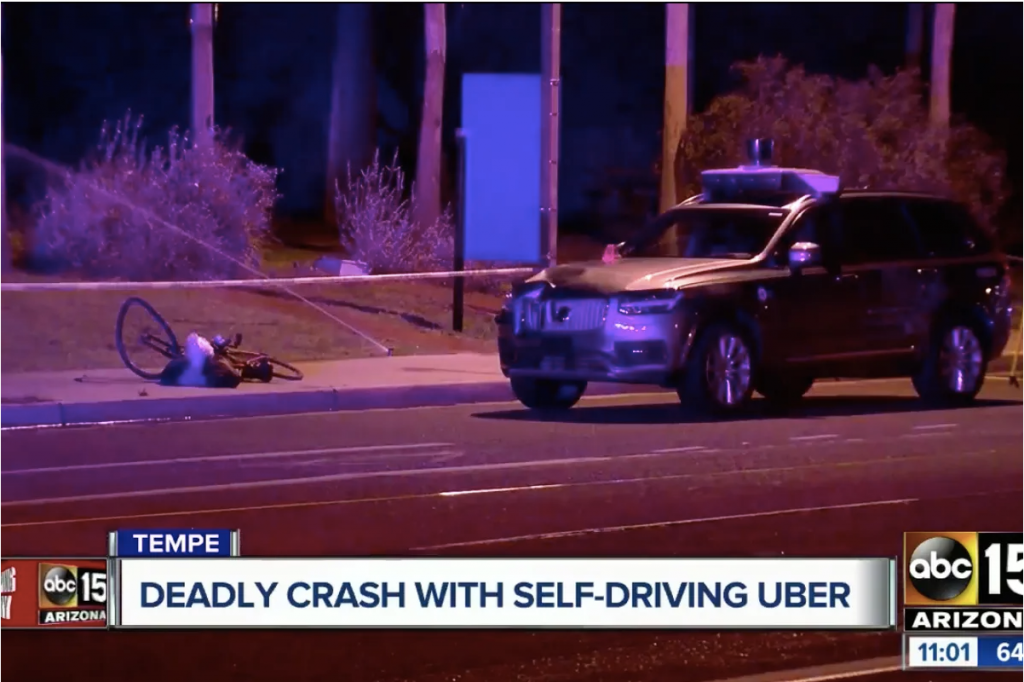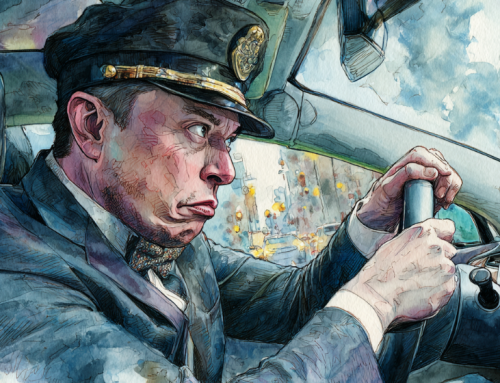
A woman crossing the road and wheeling a bicycle was killed by an Uber AV on March 18, 2018. (Source: ABC 15 via theverge.com)
Full Details on Uber Crash Released More Than Five Years Later as Test Operator Gets Probation
In the first major wake-up call for autonomous car companies, when Uber’s self-driving car hit a pedestrian and killed her in Tempe, Arizona in March of 2018, test-driving of such vehicles ceased or became regulated to prevent endangering the public, according to a story on WIRED.com. Uber canceled its AV plans altogether and paid the family of Elaine Herzberg a settlement for her death.
In the more than five years since, the case came to a conclusion when the test operator during the crash, Rafaela Vasquez, pleaded guilty to one count of endangerment and was sentenced to three years of supervised probation, with no time in prison. She could have faced four to eight years.
Vasquez, who had been accused of watching the TV show “The Voice” while monitoring the car, was proven to have been listening to the show, but instead was monitoring the company Slack account on a work handset, something she was told to do during non-driving times by Uber. WIRED.com described Uber’s culpability in the accident thus:
“In pretrial filings, Vasquez’s attorneys cited the NTSB’s findings against Uber: The car failed to identify Herzberg as a pedestrian, and so failed to apply its brakes. The NTSB also found that Uber kept an ‘inadequate safety culture,’ doing little to protect test operators from the well-known phenomenon of ‘automation complacency’—humans’ tendency to direct less attention to automatic processes that demand little input. In the months before the crash, Uber had removed a requirement for there to be two test pilots in each car, which operators told WIRED had kept them more alert and adherent to the company’s no-cell-phone policy. Instead, in the months leading to the crash, solo operators were often looping the same monotonous route on hours-long shifts, left to self-police their usage of cell phones. Uber forbade operators from using handsets while driving, but also had the operators keep the phones handy in the car in order to get company Slack messages. Several other test operators had been fired for violating the phone policy before the 2018 crash.”
Vasquez’s plea kept Uber from a lengthy trial with further potential criminal damages. Another damning piece of information WIRED.com uncovered was that a former operations manager of the self-driving-truck division, Robbie Miller, sent a whistleblower email to his supervisors prior to the crash, “warning about the car division’s poor safety record and practices.”
AV cars are still being tested by Waymo and Cruise, but are subject to stricter controls by law. Neither driving service charges for AV rides yet, as they are still in the testing phase.
read more at WIRED.com







Leave A Comment